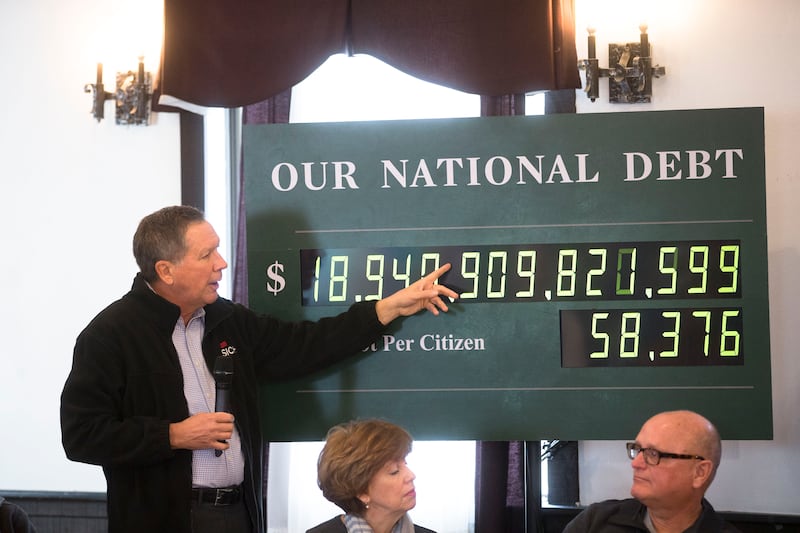As I get back to work in Washington, a top priority will be urging both sides of the aisle to seriously confront our exploding national debt. Members of both parties, unfortunately, are responsible for growing the debt. Legislation supported by Republicans and Democrats and signed into law by President Donald Trump will add over $4 trillion to the debt between 2017 and 2029. The warning signs are flashing red for our economy and our prosperity.
Failure to address the debt has resulted in its size today growing from 79% of the size of our total economy — the Gross Domestic Product (GDP) — to a projected 108% of GDP in 2030, topping the all-time record set in 1946, just after World War II. That’s putting our country into a danger zone that threatens to slow economic growth, place upward pressure on interest rates, heighten the risk of a fiscal crisis and crowd out all other priorities.
The most recent spending deal, which I opposed, makes spending increases in the 2018 budget permanent. That adds another $1.7 trillion in debt through 2029. Between some Democrats promising more “freebies” and some Republicans and the president promoting unpaid for tax cuts costing $1.8 trillion, very few in Washington have clean hands on the issue.
My first fight in Congress — together with fellow Blue Dog Democrats — was to ensure that pay-as-you-go rules stay in place in the House. This common-sense budget enforcement mechanism is a proven tool to help stop deficit increases. The first bill I introduced was a Balanced Budget Amendment to the Constitution, requiring the president to submit a balanced budget every year and forcing all sides to make tough choices on how to spend precious taxpayer dollars. And I successfully fought against a pay increase for members of Congress.
In the past, during good economic times, some in Washington have responsibly worked to lower annual deficits, set spending caps, and support fiscal restraint. According to nonpartisan budget-watchers, putting debt on a downward path could increase the average income in the U.S. by almost $9,000 per person per year. It also lowers the $376 million interest payments we’re making to Japan and China and other countries holding our debt. It provides the federal government with a financial cushion to address the next economic recession or natural disaster, where emergency spending is necessary and desirable.
As a former mayor, I balanced every budget annually, with support from Republicans and Democrats on the County Council. Salt Lake County’s fiscal stewardship resulted in AAA bond ratings — one of a limited number of counties in the U.S. to achieve that status. We had plenty of vigorous, open debates about how to both effectively fund services for taxpayers as well as keep tax rates low. Not everyone got everything they wanted, but in the end, we were held accountable to our residents for how government operated and spent tax dollars.
The first step towards fiscal responsibility in Washington is to acknowledge there’s a problem. In 2020, I pledge to continue raising this issue, voting against irresponsible spending and working with Republicans and Democrats to find solutions to putting our fiscal house in order. Future generations are counting on us to fix the debt and strengthen our economy, our communities and our country.
Ben McAdams serves as the U.S. Representative for Utah’s 4th congressional district.

